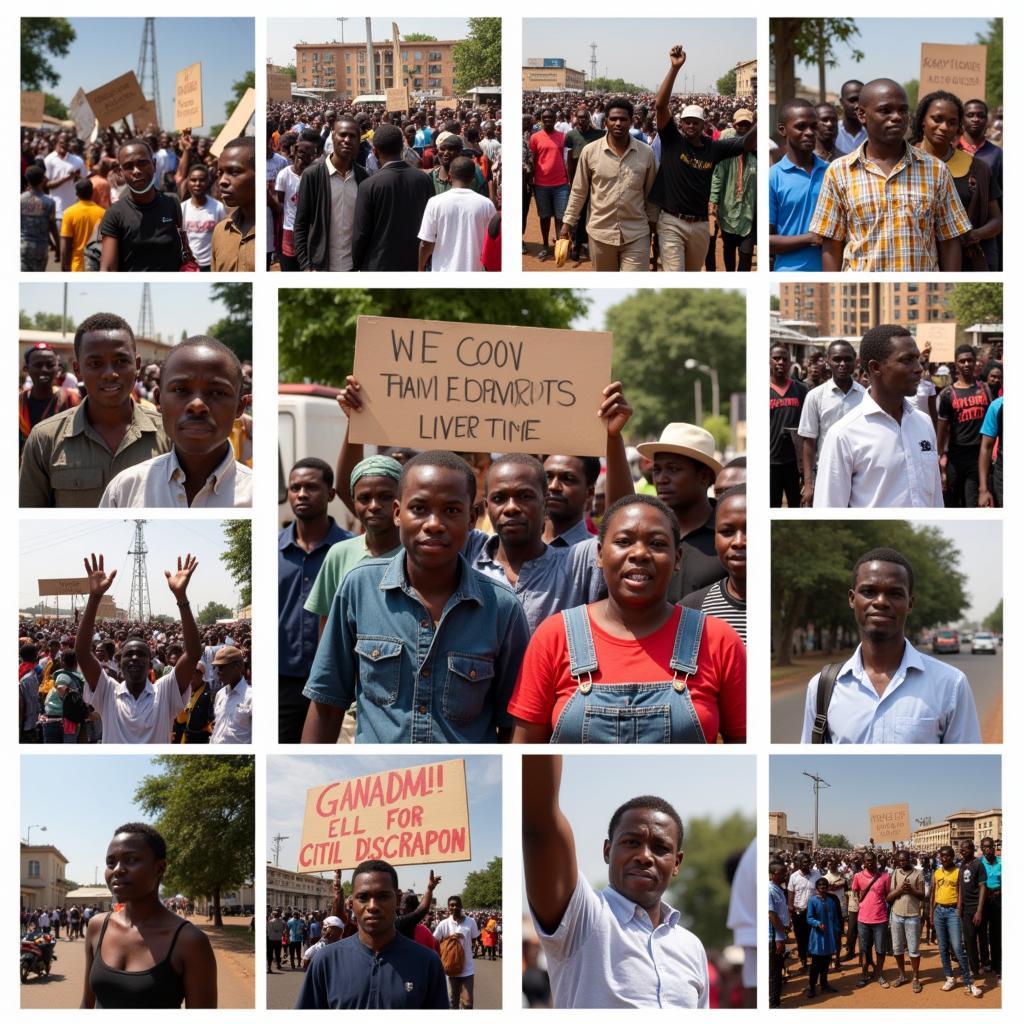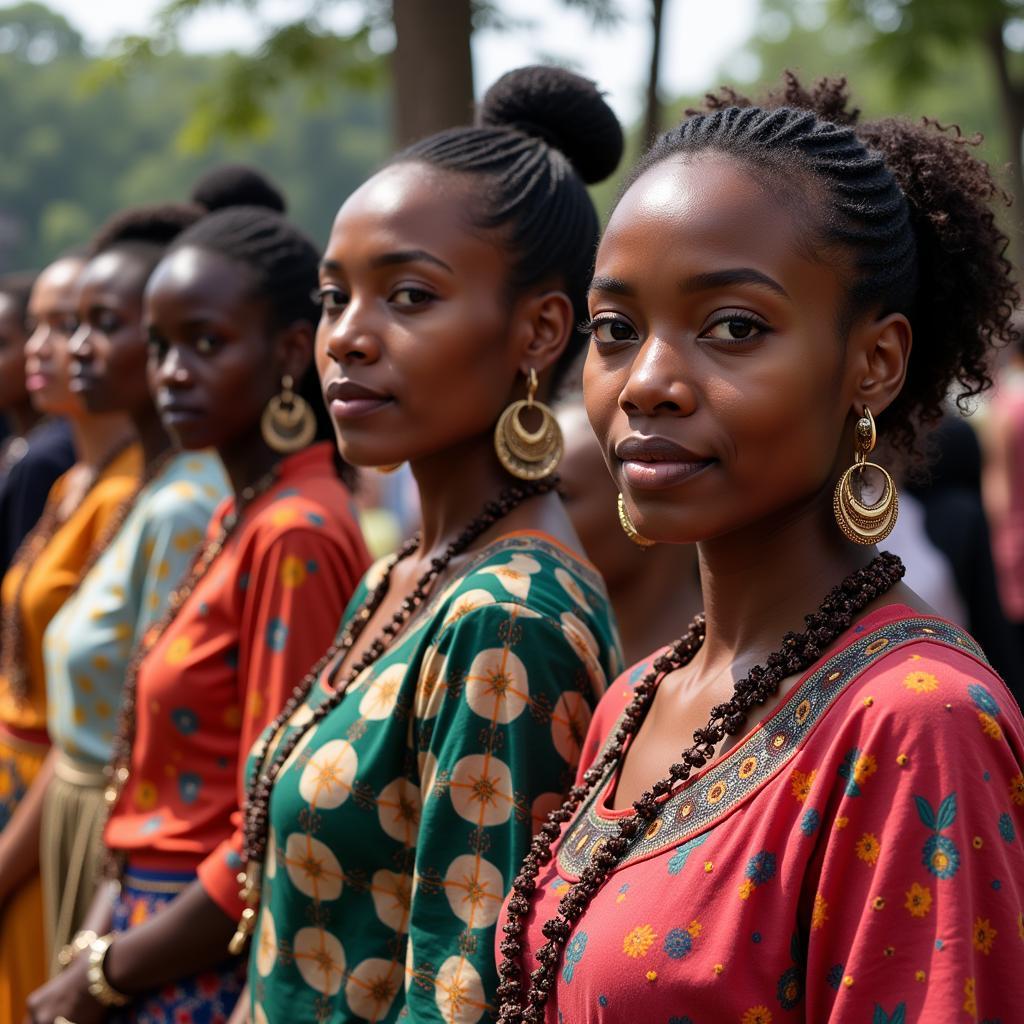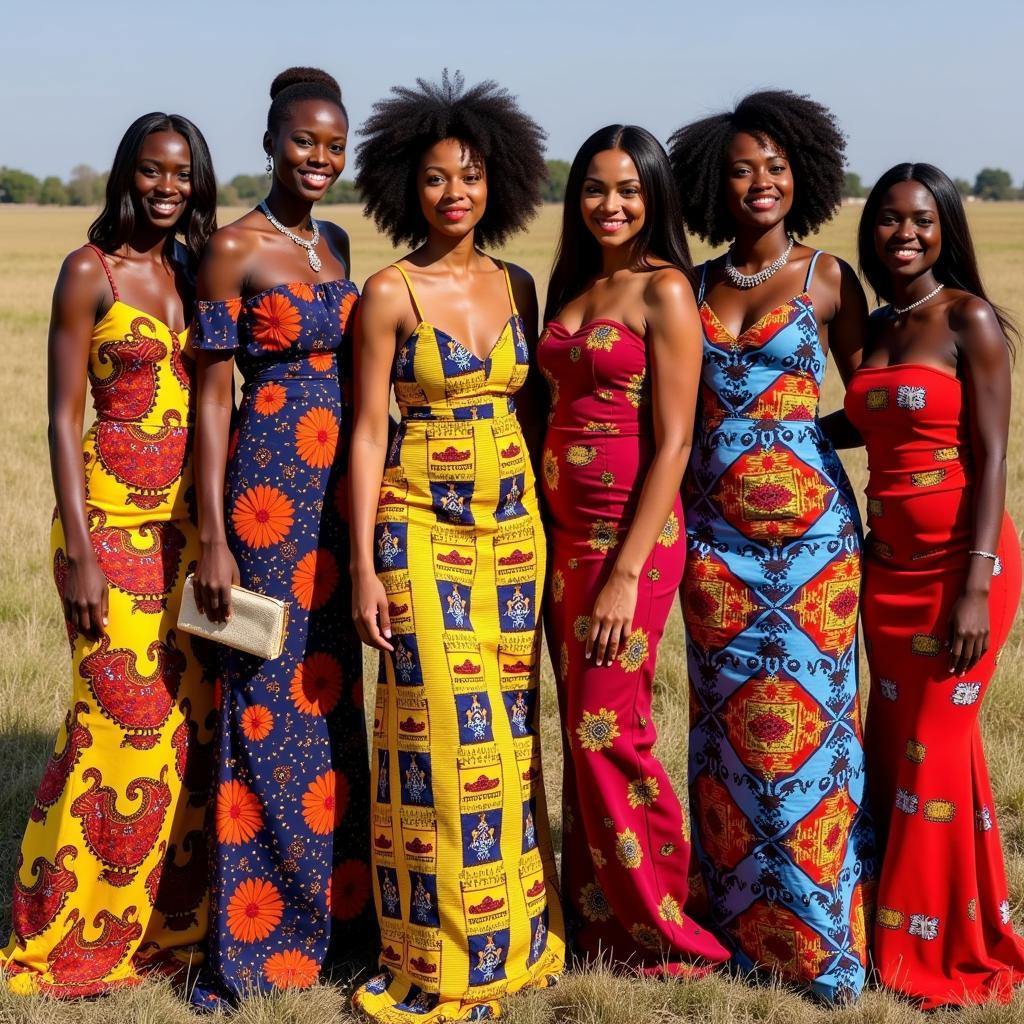Unveiling the “African Gandhi”: Exploring Influences and Legacies
The term “African Gandhi” often surfaces in discussions about prominent African leaders who championed peaceful resistance and social change. While no single individual perfectly embodies the title, exploring the concept helps us understand the complex tapestry of African activism and its connection to Gandhi’s philosophy. This article delves into the historical context, key figures often associated with the moniker, and the lasting impact of non-violent resistance movements across the African continent.
Who is Called the “African Gandhi”? A Closer Look
The “African Gandhi” isn’t a singular person, but a symbolic representation applied to several African leaders who embraced non-violent resistance. These individuals, inspired by Mahatma Gandhi’s methods, adapted his philosophy to their own unique contexts, leading struggles against colonialism, apartheid, and other forms of injustice. Understanding the nuances of this comparison requires examining the core tenets of Gandhi’s satyagraha and how they resonated within the African liberation movements.
It’s important to note that labeling someone the “African Gandhi” can be both a compliment and a simplification. It acknowledges their commitment to non-violence and social justice, but also risks overlooking the distinct characteristics of their struggles and the unique strategies they employed.
Key Figures Often Compared to Gandhi
Several influential African figures have been likened to Gandhi due to their adoption of non-violent resistance. Kwame Nkrumah of Ghana, often cited as an “African Gandhi,” incorporated Gandhian principles in his fight for independence. Similarly, Kenneth Kaunda of Zambia employed peaceful methods in his struggle against colonial rule. In South Africa, figures like Nelson Mandela, while initially advocating armed resistance, later embraced non-violence as a core strategy in dismantling apartheid. While not solely reliant on Gandhian principles, these leaders demonstrated a shared commitment to peaceful change, demonstrating the widespread impact of Gandhi’s philosophy across diverse African contexts.
The Impact of Gandhi’s Philosophy on African Liberation Movements
Gandhi’s philosophy of satyagraha, meaning “truth force,” resonated deeply within African liberation movements. His emphasis on non-violent resistance, self-reliance, and the power of collective action offered a potent framework for challenging oppressive regimes. From boycotts and peaceful protests to civil disobedience, Gandhi’s tactics were adapted and implemented across the continent. This adoption, however, wasn’t a mere replication, but a creative adaptation, shaped by the specific socio-political realities of each nation.
“Gandhi’s influence extended far beyond India,” notes Dr. Anika Sharma, a historian specializing in African liberation movements. “His ideas provided a powerful toolkit for activists seeking to dismantle unjust systems through peaceful means.”
 Gandhian Influence on African Protests
Gandhian Influence on African Protests
Beyond the “African Gandhi”: Unique African Approaches to Non-Violence
While the “African Gandhi” label provides a useful entry point for understanding the influence of Gandhian thought, it’s crucial to recognize the unique contributions of African activists. Many leaders integrated traditional African concepts of community, dialogue, and reconciliation into their strategies, creating hybrid approaches to non-violent resistance. These adaptations demonstrate the dynamic interplay between global ideas and local contexts, showcasing the rich diversity of African activism.
“African leaders didn’t simply copy Gandhi,” explains Professor Kwame Mbaye, a scholar of African history. “They creatively adapted his ideas, blending them with their own cultural traditions and political strategies.”
Conclusion: The Enduring Legacy of Peaceful Resistance in Africa
The concept of the “African Gandhi” highlights the powerful impact of Mahatma Gandhi’s philosophy on African liberation movements. While no single individual fully embodies the title, exploring this connection reveals the widespread adoption and adaptation of non-violent resistance across the continent. From Kwame Nkrumah to Nelson Mandela, African leaders demonstrated the enduring power of peaceful struggle in achieving social and political transformation. Understanding these diverse legacies is essential to appreciating the complex history and ongoing evolution of activism in Africa.
FAQ
-
Who is considered the “African Gandhi”? The term is applied to various African leaders who embraced non-violent resistance, not a single individual.
-
How did Gandhi’s philosophy influence Africa? It provided a framework for non-violent resistance, inspiring movements across the continent.
-
Did African leaders solely rely on Gandhi’s methods? No, they often integrated traditional African approaches to conflict resolution.
-
What is satyagraha? It’s Gandhi’s philosophy of “truth force,” emphasizing non-violent resistance.
-
Why is the “African Gandhi” label sometimes controversial? It can oversimplify complex historical narratives and unique individual contributions.
Need further assistance? Contact us 24/7: Phone: +255768904061, Email: kaka.mag@gmail.com, Address: Mbarali DC Mawindi, Kangaga, Tanzania.


